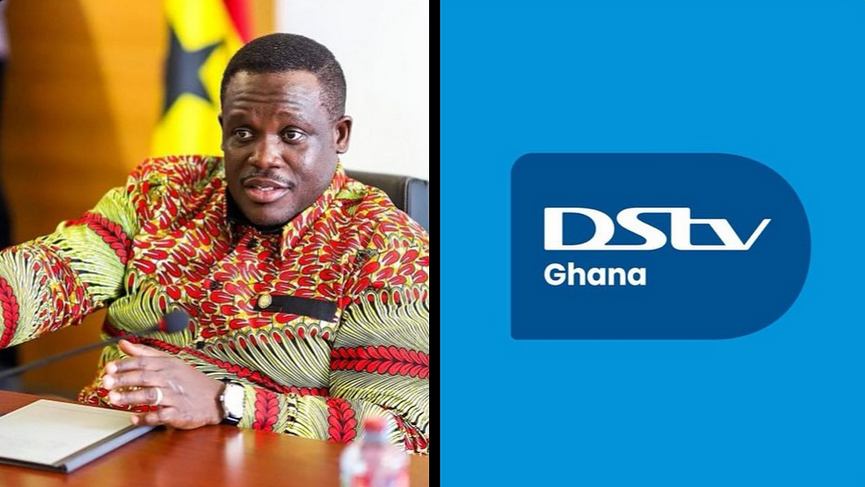The Ghana Voice,
Accra, Ghana

DStv Under Fire: Minister and Consumers Unite to Demand Price Cuts, Transparency Over Ghana’s ‘Unfair’ Subscription Fees"
The Ghana Voice 03-08-2025The standoff over DStv subscription pricing in Ghana has intensified, with both Communications Minister Samuel Nartey George and outspoken consumer rights advocate Professor Stephen Kwaku Asare (Kwaku Azar) challenging MultiChoice Ghana to justify what they describe as disproportionately high fees compared to other African countries.
The fresh wave of criticism follows MultiChoice Ghana’s 3rd August 2025 media statement responding to the Minister’s concerns over pricing. While the pay-TV operator expressed regret over the Minister’s stance and cited “extremely challenging macroeconomic conditions” as a reason for maintaining current rates, critics say the company failed to address the most important issue — why Ghanaians pay more for DStv than customers in countries such as Nigeria, Kenya, and South Africa.
Minister George, in a strongly worded rebuttal, accused the company of not taking Ghanaians seriously. He noted that in Nigeria, MultiChoice reversed price increases after being sued by authorities and ordered to suspend the hikes by the House of Representatives. “They complied,” he said, contrasting it with Ghana, where DStv implemented a 15% price increase in April despite the cedi appreciating by about 10%, inflation dropping over 5%, and fuel prices falling.
The Minister disclosed that he rejected an alternative proposal from DStv that would have allowed the company to keep current prices but prevent revenue from being sent to its headquarters. “That offer lacks any logic… The essence of my action is to see Ghanaians pay a fair price for the services offered,” he said, insisting that any constructive engagement must be centred on price reduction.
Joining the debate, Professor Asare, a long-time DStv subscriber, criticised MultiChoice’s statement as evasive. Writing under his “GOGO” advocacy platform, he said the company’s response “sidesteps the most crucial issue” — comparative data showing Ghanaian consumers pay more for the same or fewer channels than other African markets.
He challenged MultiChoice to publicly disclose:
- Why Ghana’s DStv prices are higher than in other countries when adjusted for exchange rates and purchasing power parity.
- Whether Ghana’s macroeconomic conditions are truly worse than those of other countries, backed by comparative metrics.
- The detailed cost structure of DStv operations in Ghana, including satellite costs, taxes, content licensing fees, and profit margins, compared with other African markets.
“We don’t need alternative engagement avenues. We need alternative pricing models that are transparent, fair, and friendly to Ghanaian consumers,” Prof. Asare stated.
As pressure mounts from both government and consumers, MultiChoice Ghana has reiterated its willingness to engage with the Minister and the National Communications Authority but maintains that reducing fees under current conditions is “not tenable.”
The dispute remains unresolved, with calls growing for MultiChoice to back its claims with data — or face regulatory action similar to that taken in Nigeria.
